Migrant Quilt Project Personifies Border Issues
Not a day goes by that at least one news story makes headlines about problems at the United States/Mexico border. Whether it is policy, police, or people, there are countless threads weaving into this hot button topic. How does any one person understand it all or go about making a difference? Artist and activist Jody Ipsen asked herself this question while volunteering to clean migrant lay-up sites in southern Arizona with a few humanitarian aid organizations back in 2007. Ipsen admits that at first she was troubled by the clothing and trash left behind by border crossers in what was otherwise a beautiful desert canyon. She could see by the discarded artifacts that many of these migrants were women with children and subsequently learned that hundreds of migrants die each year while crossing this particularly cruel stretch of terrain called the ‘Tucson Border Patrol Sector’ alone; each life claimed is somebody’s father, brother, mom, sister, child.
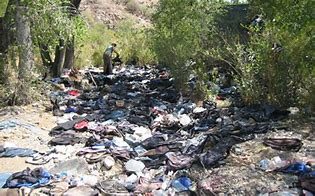
Officials do not know how many immigrants are attempting the walk through this one portion of border territory but they do know that increased patrols are causing those who do cross illegally to push through dangerous and remote areas to come here.
These revelations led her to create the non-profit collaboration Migrant Quilt Project which memorializes those who have died in the attempt to reach the United States.
“As we were cleaning this particular site,” Ipsen explains. “I realized that the clothing could be incorporated in a quilt that expressed the deaths in the desert, honoring their courageous journeys, while questioning the deleterious effects of current border policy.” Accordingly, the Migrant Quilt Project sews a quilt every year that migrants die in the Tucson Sector. The group receive names from the Office of the Pima County Medical Examiner who keeps track those who die in the borderlands. Then MPQ finds a quilter who has interest in making a quilt and the panel goes on tour. Curator Peggy Hazard and other quilters sometimes travel to venues to present, Ipsen tells ArtBeat.
We have at our doors a challenge seemingly of our own creation and it exposes a bigger picture. With the MPQ, Ipsen lights a candle instead of cursing the darkness with her incisive message: People die seeking work or fleeing violent and corrupt home countries and it is our burden, too. The matrix of human displacement is enormous but mostly she blames the United States for federal trade policies that effectively dismantle small-scale peasant farming which forces the poorest from their homes. After traveling to Mexico and Central America to study the root causes and sociological aspects of migration, Ipsen bluntly states that the U.S. “is unequivocally responsible for destroying economies throughout Latin America.”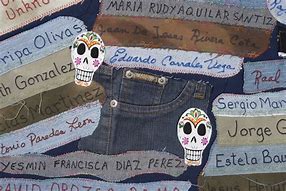
Ipsen’s enterprise is arguably one of the most politically conscientious art exhibits out there and has become a symbol to lives caught up in the turbulence. This supremely complex matter is made humanly simple as Ipsen nails the whole mess on the head with pieces of denims, baby clothes and toys removed from the badlands. Viewers must ask themselves many questions including, “If I wasn’t born here, what lengths would I go to for this perceived safety and better life in America? And if I did make it across the border, then what?”
“As I was hiking migrant trails and volunteering for aid organizations, I never considered where this journey would take me. I felt deeply concerned for all the deaths in the Tucson Border Patrol Sector, and all the people who remain unknown in shallow graves across the blistering desert,” she shares. “When I found someone to make the first quilt it then felt natural to continue until all the years were completed since the Medical Examiner was collecting data since 2000.” Ipsen worked in education publishing prior to her volunteer work and earned her Master’s degree in creative nonfiction from the University of New Mexico since the start of MQP.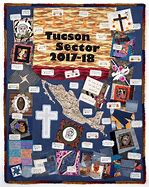
“It’s my hope that people will be able to cross the border at international ports for jobs,” says Ipsen. “Migrant labor is in high demand, and it would be wonderful if the U.S. can fill these jobs by increasing work visas, create a path to citizenship for all those who are here and to stop criminalizing illegal entry.” She also encourages lawmakers to support DACA (Deferred Action for Childhood Arrivals) rights toward citizenship and feels that Immigration and Customs Enforcement officials need to end their “Death by Deterrence” policies which she says forces people into remote regions where they succumb to the elements and preventable illnesses.
The mission Ipsen began 12 years ago is gaining momentum and inviting dialogue that will surely resonate for decades, like the AIDS Memorial Quilt (1987 and counting). Please contact MQP to engage Ipsen’s expertise as a speaker or for a list of agencies, websites, books, and addresses on how an every-day-person can inform themselves and make a difference. Ipsen recommends concerned citizens meet with and write their elected officials and she suggests volunteering to gain first hand knowledge of border and migrant issues. More than anything, Ipsen encourages us to VOTE for more humane policies here and abroad.
ArtBeat Magazine greatly appreciates Ms. Ipsen’s time discussing her art and viewpoint with us. Thank you. The Migrant Quilt Project will be in locations across the country for the following dates:
August 3-September 26, 2019: Migrant Quilts Exhibit, Indiana Interchurch Center and St. Peter’s UCC, Indianapolis, Indiana
October 28-December 9, 2019: Migrant Quilts Exhibit, Capitol Hill Arts Workshop, Washington, D.C.
January 14-March 15, 2020: Migrant Quilts Exhibit, The Mathers Museum of World Cultures, Indiana University, Bloomington, Indiana
April-July 2020: Migrant Quilts Exhibit, Lewis & Clark Interpretive Center and the Betty Strong Encounter Center, Sioux City, Iowa

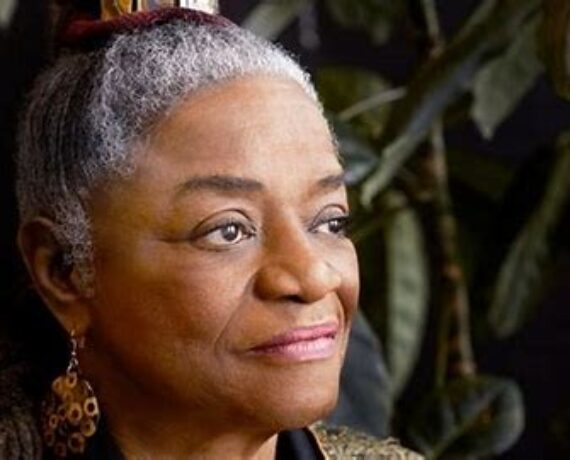
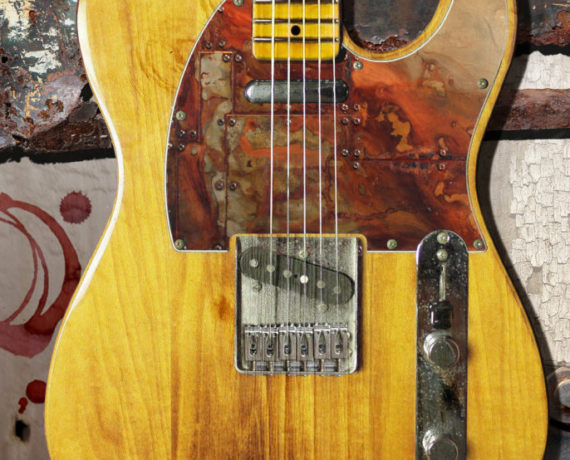
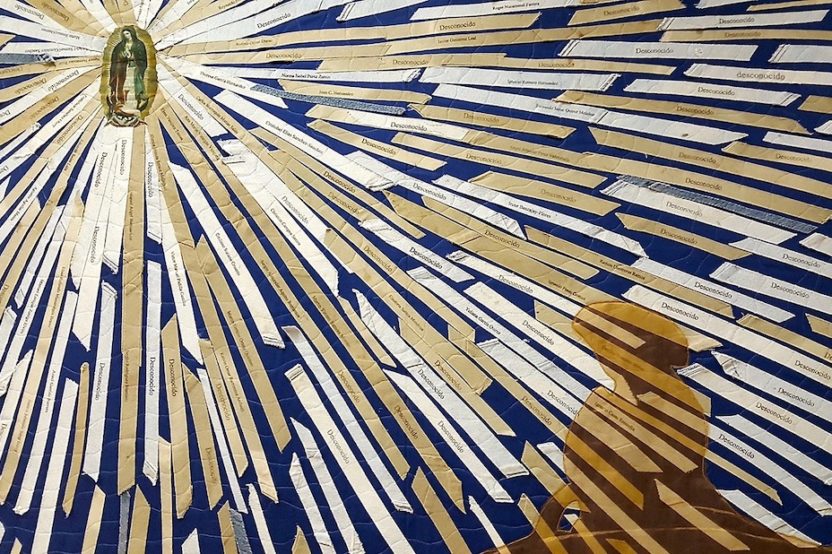

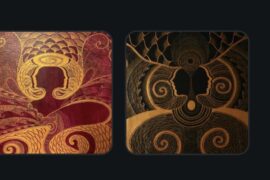

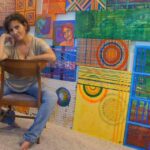 Art & Expectations – Jennifer S. Levine
Art & Expectations – Jennifer S. Levine  As Within, So Without
As Within, So Without  Time For Miniatures in Tucson
Time For Miniatures in Tucson 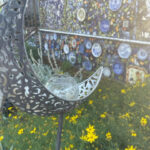 Elemental Awareness – Enchanted Hart Haus
Elemental Awareness – Enchanted Hart Haus